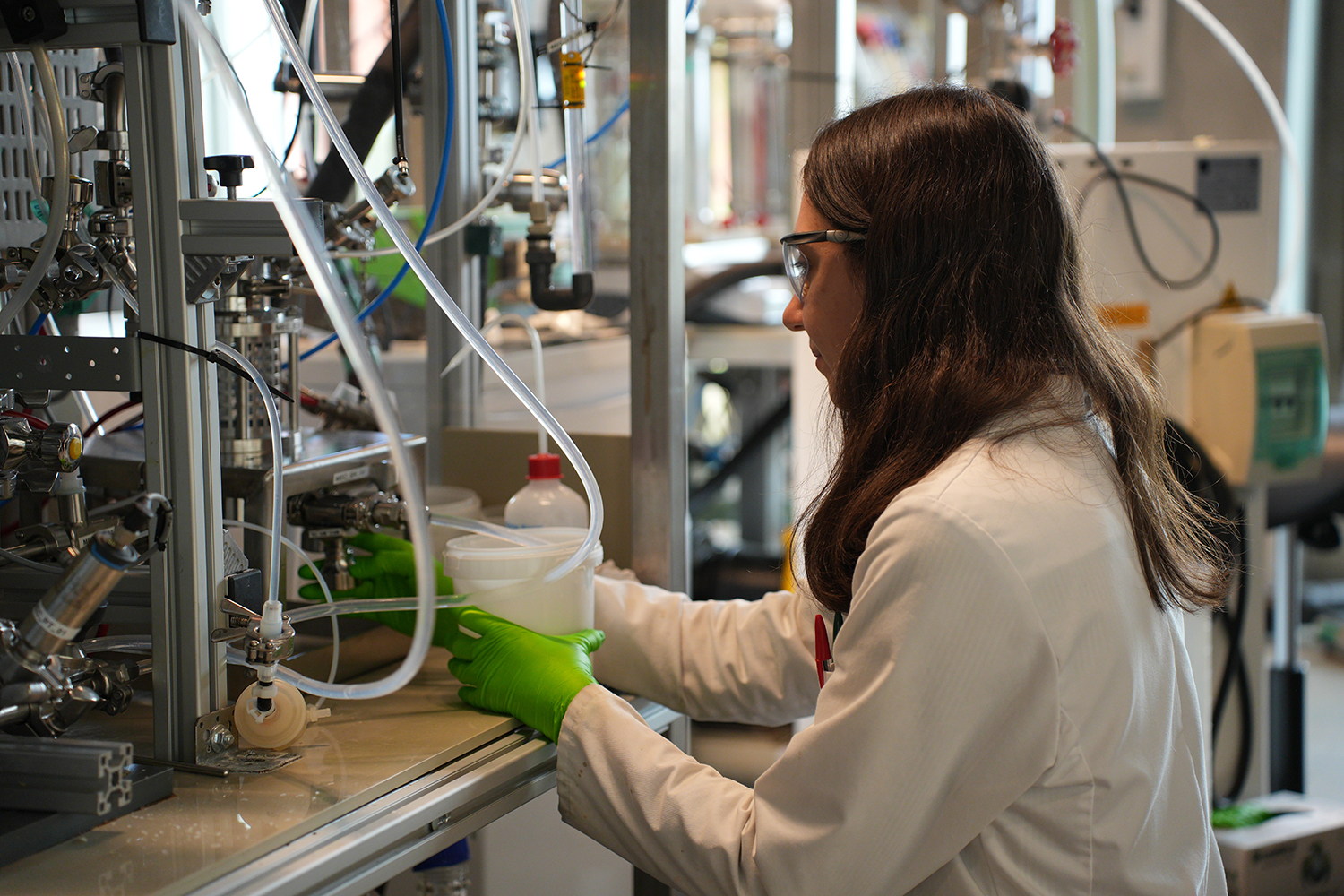Food waste is a rising environmental problem, with around 58 million tons of food waste produced yearly in the European Union. In the context of circular bioeconomy, food waste valorization has emerged as a critical strategy for environmental management and resource recovery. Rich in readily biodegradable material, food waste offers significant potential for the production of high-value chemicals via microbial fermentation, such as carboxylic acids. These compounds serve as key platform chemicals for diverse industrial applications, ranging from food and beverage additives to precursors for biodegradable plastics. Despite the growing interest, the drivers behind product formation at thermophilic conditions (≥50°C) remain poorly understood.
A recent study conducted by PhD student Laia Vulart and led by Prof. Ramon Ganigué, in collaboration with the MELiSSA Pilot Plant in Barcelona, sheds new light on this challenge. The research explored the combined effect of feeding regime (continuous and sequential batch) and pH (5.3, 5.8, and 6.3) in thermophilic fermentation of food waste. Results demonstrated that both parameters play a key role in shaping the microbial community, steering the fermentation process toward producing either a mix of volatile fatty acids or predominantly lactic acid, while also suppressing methane production. Therefore, rigorous control of operational conditions is essential for optimizing thermophilic mixed-culture fermentations to achieve high yields of the target products in future applications. By understanding the interplay between these operational parameters and the fermentation process, this research contributes to the development of more efficient and sustainable bioprocesses for resource recovery.
